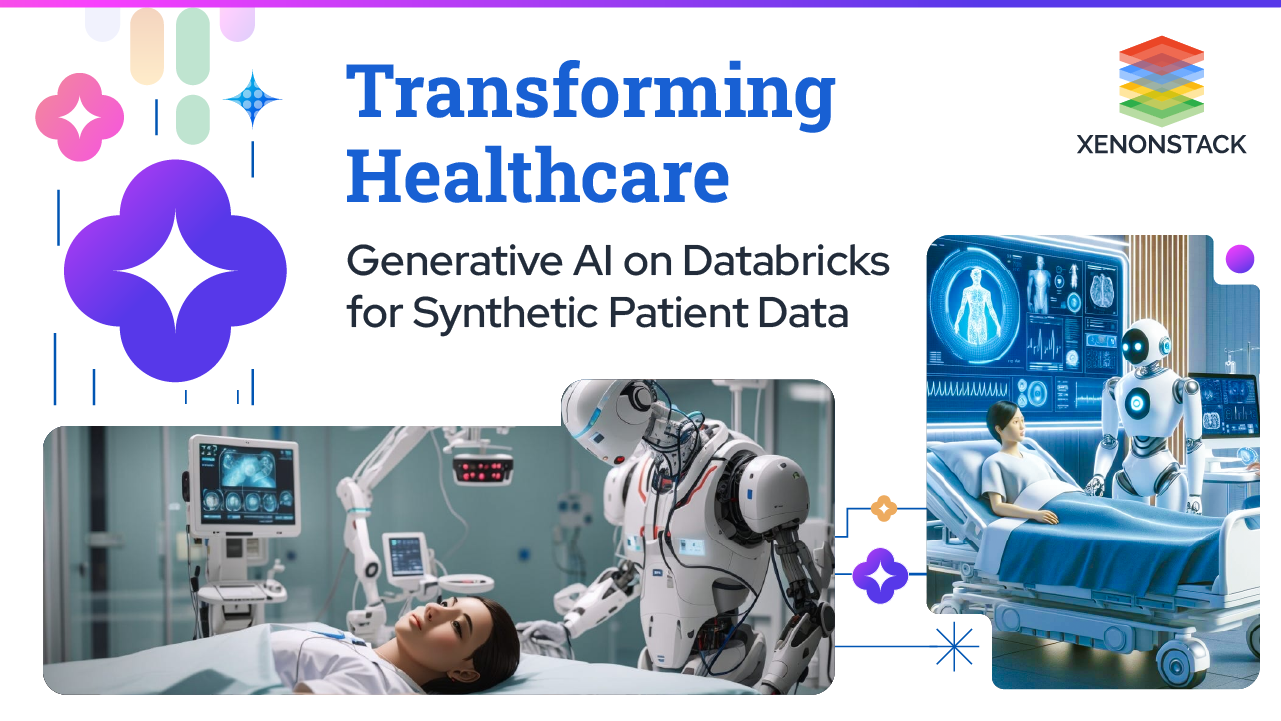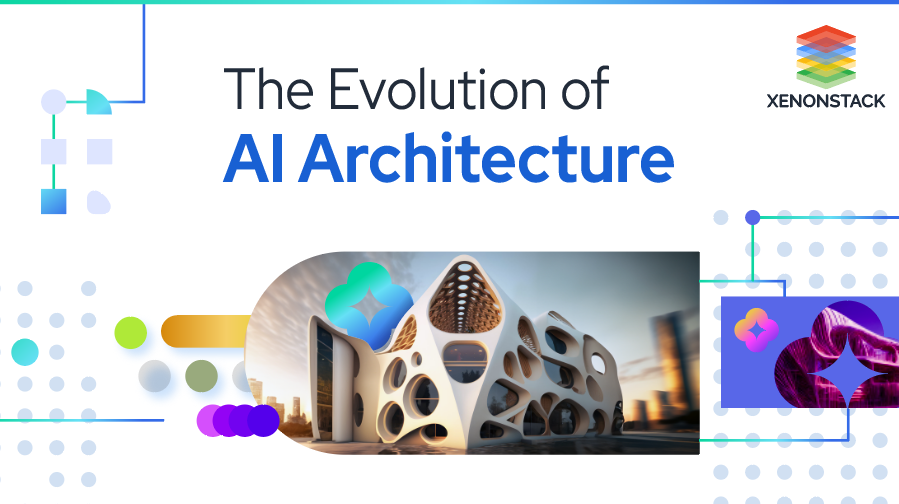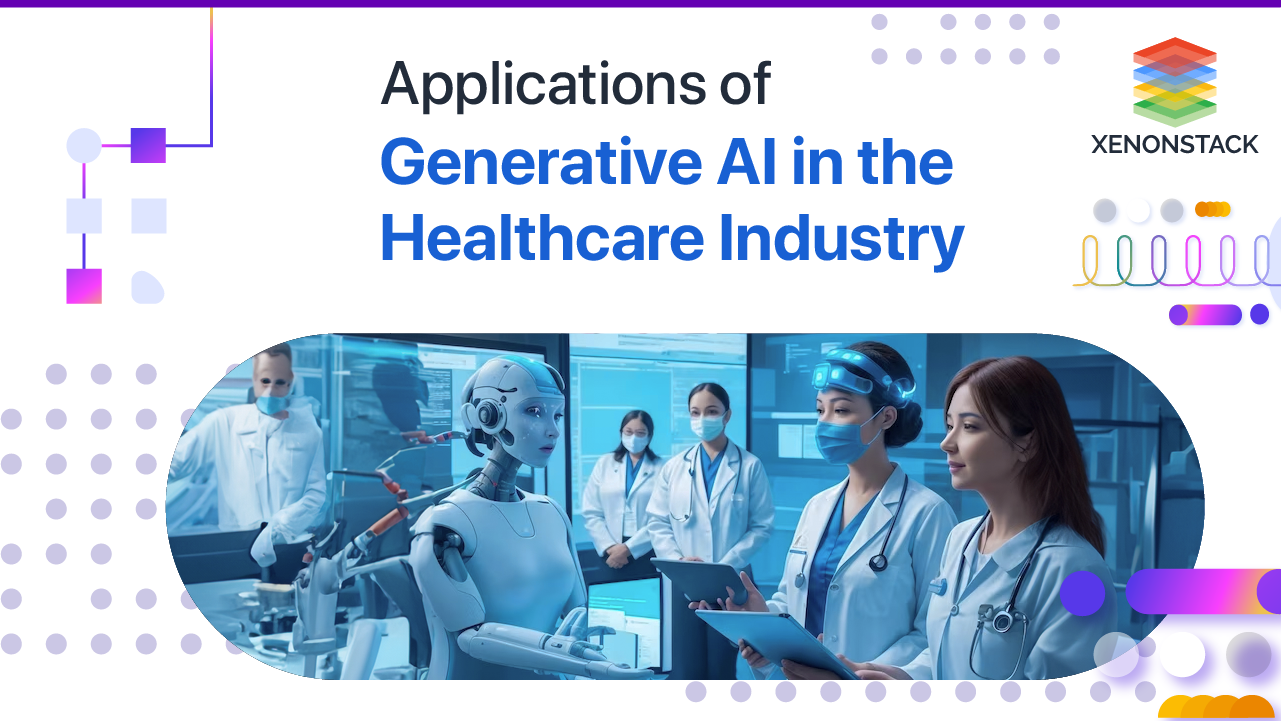
Introduction of GenAI and its Applications to Healthcare
Data-based research and analysis are needed to gain better healthcare knowledge and increase patients' comfort as the healthcare landscape evolves. However, accessing and using such data for research purposes is significantly challenging due to the sensitive nature of patients' information while respecting their privacy and safety. Generative AI offers a transformative solution to these challenges, combined with the robust capabilities of platforms such as Databricks. We explore the use of generative artificial intelligence in Databricks tailored for healthcare, from creating synthetic patient data to enhancing data privacy and security. This comprehensive guide also explores its profound impact on the revolution of healthcare research.
What is Generative AI?
GenAI can produce highly realistic and complex content replicating human creativity, making it a valuable tool for many industries, such as gaming, entertainment, or product design.
Leveraging data bricks for healthcare data processing and analysis
Databricks is a game changer in the processing and analysis of healthcare data, thanks to its scalable and collaborative platform. Its unified Analytics Platform enables seamless integration of a variety of healthcare data sources, including electronic health records (EHRs), medical images, and genomic and sensor information. Databricks is a powerful platform to process and analyze healthcare data, allowing for scalability, collaboration, integration, advanced analytical capabilities and robust security features. By using Databricks, healthcare organizations can unlock the full potential of their data and make a difference in patient outcomes by driving insights, innovation as well as improved results.
Scalable data processing
Databricks offer powerful capabilities to process large volumes of medical information in an efficient manner. Its distributed computing framework enables rapid data ingestion, transformation, and analysis through parallel processing of data on multiple nodes.
Collaborative environment
The Databricks platform enables seamless collaboration between health researchers and data scientists. It facilitates collaboration and knowledge sharing between multidisciplinary teams by means of its cooperation features, e.g., common notebooks and version control.
Integration of diverse data sources
Databricks allow researchers to analyze data from different sources on a single platform, enabling them to integrate various health information sources. Databricks provides the tools and infrastructure to efficiently process and analyze different types of healthcare data, whether it's EHR data, medical imaging data, genomic data, or sensor data.
Advanced Analytics
Databricks provides healthcare researchers with a broad range of analytical tools and libraries that allow them to perform complex analyses. Databricks supports several Analytics techniques to derive insights from healthcare data, ranging from Machine Learning and Deep Learning to Natural Language Processing and Graph Analytics.
Security and Compliance
Databricks prioritizes security and compliance, particularly in the healthcare sector, where data protection and legislation are of primary importance. To guarantee the confidentiality and integrity of healthcare data, it provides strong security features such as encryption, access controls, and audit records. In addition, Databricks provides healthcare organizations with assurance of data protection and regulatory compliance through the maintenance of certifications such as HIPAA or GDPR.
Generating Synthetic Patient Data for Research Purposes
The key application of Generative Artificial Intelligence to healthcare is the generation of synthetic patient data for research purposes, which offers solutions in terms of data scarcity and privacy issues. Leveraging advanced techniques such as Generative Adversarial Networks (GANs) on platforms like Databricks, synthetic patient data closely mimics real-world data distributions while safeguarding patient privacy.
Addressing data shortage
The challenge of restricted or inadequate real-world patient data for research is addressed through the generation of artificial patient data. Researchers can supplement their data sets and carry out more comprehensive analyses by creating synthetic data that correspond to the statistical characteristics of the actual patient population.
Protecting patient privacy
By removing personally identifiable information from generated data, Synthetic Patient Data Platforms such as Databricks ensure that patients' privacy is protected. This will enable researchers to carry out analyses and experiments in a way that does not compromise patient confidentiality or infringe on data protection regulations, such as the Health Insurance Portability and Accountability Act.
Simulation of scenarios
Using synthetic patient data, researchers can simulate a variety of healthcare situations and outcomes to facilitate hypothesis testing and predictive modeling. To gain insight into the dynamics of health care and improve decision-making, researchers may look at different patient demographics, medical conditions, responses to therapy or other factors.
Enabling experimentation
A sandbox environment for experimentation and innovation in healthcare research is provided by synthetic patient data. To evaluate the robustness of algorithms, models, and systems in a variety of conditions, researchers can manipulate parameters, introduce anomalies, and simulate rare events.
Facilitating cooperation between healthcare researchers and data scientists
The creation of synthetic patient data facilitates cooperation and knowledge sharing between healthcare researchers and data scientists. Platforms such as Databricks encourage collaboration on research projects, benchmarking studies and algorithm development efforts between institutions and disciplines by providing access to standard artificial data sets.
Enhancing Data Privacy and Security in Healthcare with Synthetic Data
Enhancing the data protection and security of health care by taking advantage of Synthetic Data is a major step forward in protecting patient information while providing valuable insight into research. Synthetic data generation ensures privacy compliance and mitigates the risk of breach by using platforms such as Databricks.
Patient Confidentiality
Synthetic data generation eliminates the presence of personally identifiable information (PII) within datasets, thus safeguarding patient confidentiality. Platforms such as Databricks ensure that sensitive information is protected against unauthorized access or disclosure by replacing the real patient characteristics with synthetic counterparts.
Regulatory Compliance
Synthetic data is a viable solution for healthcare organizations to meet regulatory requirements and comply with strict privacy legislation such as HIPAA and GDPR. Platforms such as Databricks allow researchers to carry out analyses that do not conflict with patient privacy laws by generating data in accordance with those regulations.
Risk Mitigation
The potential impact of security breaches or unauthorized disclosure on patient protection and confidentiality is significantly reduced by synthetic data without real identifiers, thus reducing the associated risks.
Data Sharing and Collaboration
Secure data exchange and collaboration between researchers and healthcare professionals is facilitated using synthetic data. Platforms such as Databricks allow for collaboration around research while keeping patient information confidential and fostering innovation and knowledge sharing within the healthcare sector through access to privacy-preserving artificial data sets.
Ethical Considerations
In healthcare research, the ethical principles of data protection and patient consent are aligned with synthetic data generation. Platforms such as Databricks, which prioritize patient privacy and confidentiality to enable researchers to obtain useful information from healthcare data at a level that does not compromise individual rights of privacy, are upholding ethical norms.
Validating Synthetic Data for Realistic Healthcare Research
To guarantee its reliability and usefulness in scientific endeavours, it is essential to verify the accuracy and applicability of artificial data for realistic healthcare research. To assess the quality, accuracy and applicability of Synthetic Datasets in a wide range of healthcare applications, researchers use different verification techniques based on platforms like Databricks.
Statistical Analysis
To compare the distributional properties of synthesized data with actual healthcare databases from around the world, researchers carry out an analysis. To ensure that synthetic data accurately reflect the underlying population characteristics, metrics such as mean, standard deviation, and distribution shapes shall be evaluated.
Feature Comparison
Feature-level comparison involves assessing the similarity between individual attributes or features of synthetic data and their real-world counterparts. To check the compatibility of artificial and real data attributes, researchers will look at key characteristics like demography, health conditions or physiological factors.
Benchmarking Against Real Data
To verify their performance in particular research tasks, artificial data are benchmarked with actual medical datasets from around the world. Comparative analyses shall be performed by researchers to assess the performance of algorithms, models or predictive tools which have been derived from artificial data against those who have obtained authentic health information.
Domain experts' evaluation
Evaluating the Clinical relevance and applicability of Synthetic Data for real-world healthcare research is carried out by domain experts, i.e. healthcare professionals and data scientists. Their insights and feedback are helping to refine the synthetic data generation process, as well as improving the accuracy of synthetic datasets.
SimulationBased Validation
To evaluate the applicability of simulation in Clinical Decision Making, Precipitation Modelling or System Optimization, researchers use synthetic data to simulate a healthcare scenario. In replicating real-world healthcare dynamics, simulation experiments help to verify the effectiveness and robustness of synthetic data.
Real-world use cases and benefits of GenAI in Healthcare Research
A wide range of applications, revolutionizing various aspects of medical practice and scientific inquiry, are covered by real-world use cases and benefits from Generative AI in healthcare research. Healthcare organizations are using the power of Generative AI to drive innovation, improve patient outcomes and advance medical knowledge through platforms such as Databricks. The potential of generative AI to change healthcare research and practice in several areas, ranging from the enhancement of health imaging for disease diagnosis to drug discovery and clinical trial optimization, is immense. The power of synthetic data generation, predictive modeling and computational analysis can be harnessed by healthcare institutions to accelerate innovation, improve patient care and advance medical science using Generative Artificial Intelligence on platforms like Databricks.
Medical imaging enhancement
GANs are used to improve the quality and resolution of medical imaging algorithms, such as Generative Artificial Intelligence algorithms and Generative Adversarial Networks. GANs help to improve the accuracy of diagnostic imaging techniques such as MRI, CT scans and X-rays, which results in more accurate disease detection and treatment planning through the creation of High-Definition Synthetic Images.
Disease Diagnosis and Classification
By analyzing patients' data, including health images, genetic sequences and clinical records, amative AI facilitates the automatic diagnosis and classification of disease. For diseases such as cardiovascular disorder, cancer and neurological disorders, deep learning models based on synthetic data can accurately identify patterns of symptoms and biomarkers that allow early detection and personalized therapy.
Drug Discovery and Development
Generative artificial intelligence is accelerating the process of discovering new molecules with desired properties by developing them. Generative AI accelerates the search for large areas of chemistry through molecular generation and optimization algorithms, which speed up the identification of possible new drug candidates and therapeutic targets in a variety of diseases.
Patient Data Generation for Research
By providing privacy preservation and representative datasets for analysis, synthetic patient data generated using Generative AI facilitates healthcare research. Researchers use synthetic data to simulate heterogeneous patient populations and conduct hypothesis testing and validation of predictive models that allow them to gain insight into disease epidemiology, treatment outcomes as well and health disparities.
Clinical Trial Optimization
By simulating patient cohorts, treatment protocols and trial outcomes, genetic AI optimizes the design and implementation of clinical trials. To streamline drug development processes and reduce research costs, synthetic patient data allow virtual clinical trials, evaluation of intervention efficacy, and refinement of trial parameters prior to initiation of human trials, which are costly and time-consuming for researchers.
Conclusion
The potential for transforming healthcare research is immense because of the power of Generative Artificial Intelligence, which can be used on platforms such as Databricks. This technology offers unprecedented opportunities for innovation, from the generation of synthetic patient data to enhancing privacy and security measures. Healthcare organizations can generate new insights, drive breakthrough discoveries, and eventually advance the frontiers of medical science if they embrace Generative Artificial Intelligence in Databricks. The potential to enhance patient outcomes knows no bounds as we further harness the capabilities of artificial intelligence in healthcare. We can pave the way for a brighter, healthier future for all by working together across disciplines, using cutting-edge technologies, and focusing on patient privacy and security.
-
Discover here about Predictive Analytics in Healthcare
-
Explore The Principles of Explainable AI in the Healthcare Industry
-
Learn about Generative AI Solutions at Xenonstack.ai





